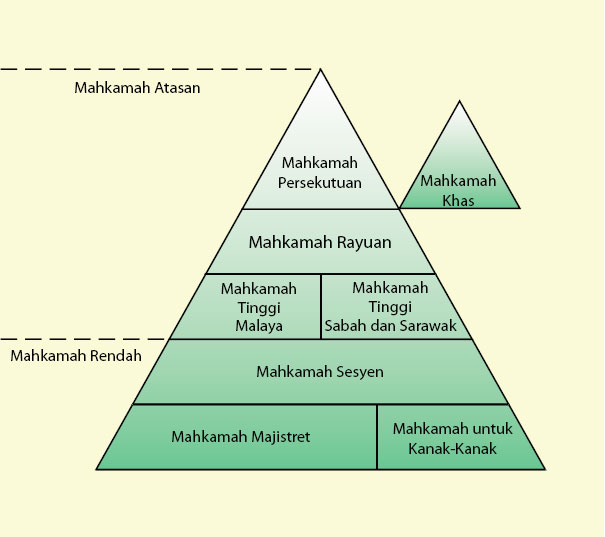
On 21 July 2010 (published on 5 August 2010 in Gazette P.U. (A) 261/2010), the Yang di-Pertuan Agong, on the advice of the Chief Justice of the Federal Court made new rules to bar access to the Special Court by members of the public and media. Breach of these rules and one may be thrown in jail or fined for contempt of court.
The new rules state as follows:
…
(2) Subject to any direction by the Special Court, all documents filed in the Special Court, shall be confidential.
(3) No person shall be present at any sitting of a Special Court except:
(a) members and officers of the Special Court;
(b) parties involved in the case before the Special Court, advocates and witnesses and other persons directly concerned in that case; and
(c) such other persons as the Special Court may specially authorize to be present.
(4) There shall be no mass media report or any publication in any newspaper, book or magazine, or transmission through any electronic medium, including the Internet, other than the Grounds of Judgment delivered, or any proceedings in a Special Court be it at the pre-trial, trial or post trial stage that reveal the name or particulars leading to the identification, of any parties concerned in those proceedings, either as being the person against or in respect of whom the proceedings are taken or as being a witness therein.
(5) There shall be no publication in any newspaper, book or magazine, or transmission through any electronic medium, including the Internet, or any picture of any parties so concerned in any such proceedings as aforesaid:
Provided that the Special Court may, in any case, if satisfied that it is in the interest of justice to so do dispense with any or all the requirements of this rule to such extent as it may deem expedient.
…
(7) Any person who contravenes sub-rules (4) and (5) may be cited for contempt.
Why are these rules unconstitutional?
The Federal Constitution in Article 182(5) states that the practice and procedure of Special Court proceedings must be like in any other court such as the High Court and the Federal Court. Special Court proceedings must therefore be open to the public and media.
Under the same Article, only Parliament may make law to have Special Court proceedings held in private (or in camera):
Until Parliament by law makes special provision to the contrary in respect of procedure (including the hearing of proceedings in camera) in civil or criminal cases and the law regulating evidence and proof in civil and criminal proceedings, the practice and procedure applicable in any proceedings in any inferior court, any High Court and the Federal Court shall apply in any proceedings in the Special Court.
The new rules were never passed by Parliament contrary to Article 182(5). As the Constitution is the supreme law of the land, the new rules must give way. Karpal is correct and Nazri’s justification cannot right a wrong.
In fact, if one closely looks at the Rules of the Special Court 1994, it is arguable that the Yang di-Pertuan Agong had no valid constitutional power to make the numerous rules on the qualifications and powers of the Special Court judges. Many Special Court judgments are at serious jeopardy and liable to be set aside by dissatisfied litigants.
Perhaps the only question which remains is whether any public-spirited media organisation or person will take the new rules banning them to task. But then again, if the Chief Justice himself advised the Yang di-Pertuan Agong that the ban was legal, how would a suit in our courts declaring the rules unconstitutional fare?
Edmund is still learning to LoyarBurok better. He chairs the Constitutional Law Committee of the Bar Council which runs the innovative MyConstitution Campaign.

SECRETS ANYONE?
Where your loyalty lies
There you have loyal secrets
It does not matter who actually lies
You can't burn two ends of a cigarette
(C) Samuel Goh Kim Eng – 241110
http://MotivationInMotion.blogspot.com
Wed. 24th Nov. 2010.
chicken shit cowards would only resort to hiding behind skirts. they're robes, not frocks. get with it.
the public have a right to have faith in their monarchs. having our monarchs conduct adjudicated in public will only serve to ensure that the monarchs do not get away with excesses and foolhardy pursuits. they are accountable to the public's trust.
Hrmm… I wonder how both the Government and Majlis Raja-Raja would respond to this.